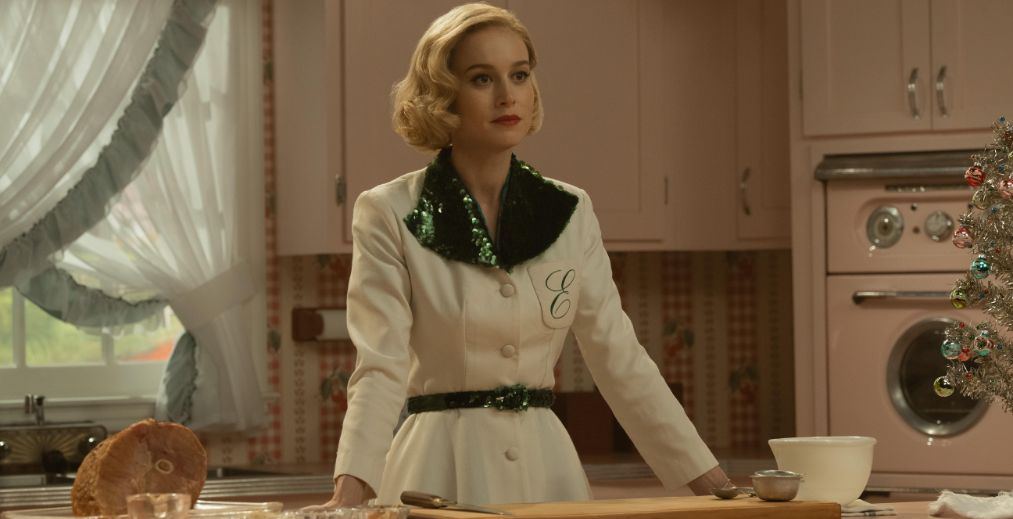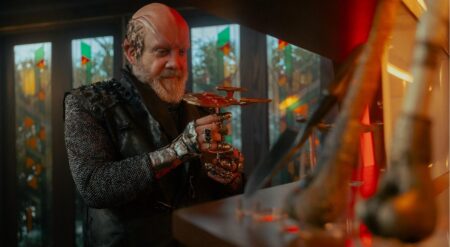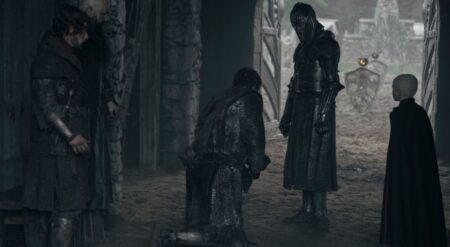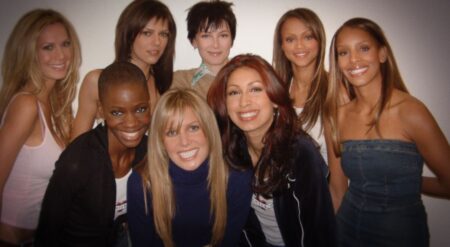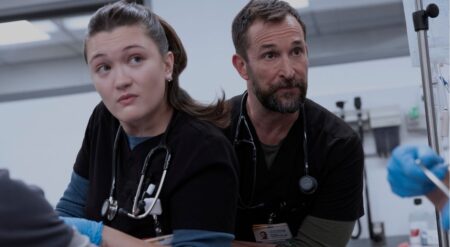Lessons in Chemistry has a simple premise in the beginning, simpler than many of the AppleTV+ dramas. Elizabeth Zott is a female chemist in the 1950s whose dream of pursuing science was cut short by the patriarchal systems of the time. However, when you watch the series directed by Sarah Adina Smith and written by Lee Eisenberg (who also serves as showrunner), there is so much more at play. The series stars Brie Larson, Lewis Pullman, Aja Naomi King, Alice Halsey, Kevin Sussman, Patrick Walker, Paul James, Joy Jacobson, Yasir Hashim Lafond, and Hero Hunter. There is love, grief, pride, and joy, and the complexity of human relationships and bigotry that pervades society. To put it simply, the series captures the dynamism of a life restrained and the resiliency that builds.
Set in the 1950s and early 1960s California, and based on the New York Times bestseller by Bonnie Garmus of the same name, Lessons in Chemistry follows chemist Elizabeth Zott (Brie Larson), whose dream of being a scientist is put on hold when she is fired from her lab. Constantly battling being seen as a secretary and the male colleagues who see her Master’s degree as nothing simply due to her gender, Elizabeth isn’t one to be pushed by the world. When her life is up-ended, a new opportunity enters her life in the form of a TV cooking show called “Supper at Six.”
With her new platform, Elizabeth moves from exploring the chemical genesis of life to teaching a nation of overlooked housewives—and the men who are suddenly listening— the recipe for self-discovery as much as the recipe for a glazed ham. With a beloved cooking show Supper at Six, Elizabeth becomes the reluctant star of America but breaks social convention just the same.
While Elizabeth pushes back on many stereotypes for women in the 1950s, preferring pants to dresses and forgoing perfume lest it cause an accident in her lab, she does love cooking. Cooking to Elizabeth, is a practical application of chemistry. Heat breaks down molecules, and different ingredients interact and become new explorations of flavor. Cooking is a beautiful use of her degree, and food is an essential and important part of life. A pinch of sodium chloride is just a pinch of salt, after all. The average woman tasked with preparing meals is so much more because cooking is so much more with true chemistry results.
The series’ approach to food fully removes it from any gendered expression despite using it to explore the ways in which Elizabeth has been pushed into a different life than what she could have had. Food is seen as a source of life, a way to show love, and something to be perfected and revered as any chemist’s research. But Lessons in Chemistry isn’t just about the sexism that pushed Elizabeth out of her career in science, causing a detour but not an end to her certainty in herself and in science.
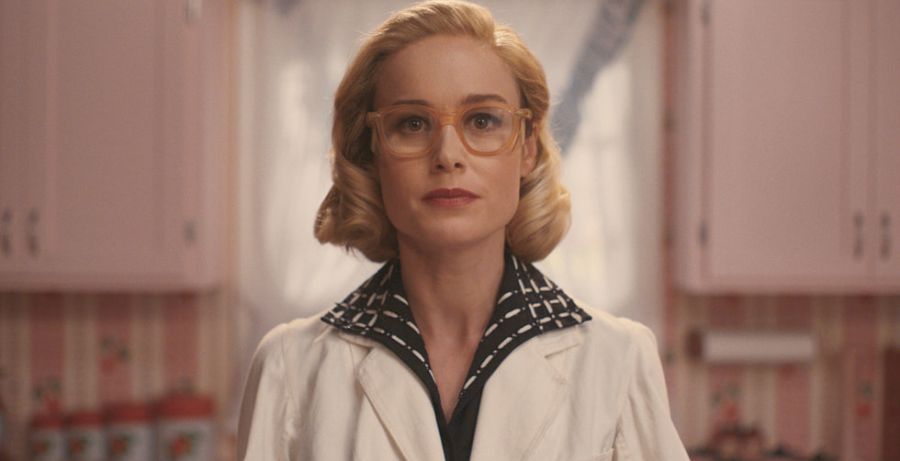
Instead, Lessons In Chemistry tells a story that looks at the intersections of life, gender, race, religion, and the ways in which we have to adapt to sudden changes. From the start, the series is aware of the specter of white feminism that accompanies a story set in the 1950s. But instead of running from it, the series confronts it directly. Elizabeth lives in a predominantly Black neighborhood, one that became home when she fell in love with her lab partner. And that neighborhood is in danger of being destroyed as the city plans to build a new freeway. It’s a struggle that leads Elizabeth to sit on a road to block construction with her Black neighbors, but more importantly, with her friends.
Through Elizabeth’s friendship with Harriet (Aja Naomi King) as they raise their families together and lean on each other. Elizabeth is pushed to examine her own privileges that make her marginalization different than that of Black women in the same time frame. It’s a choice that does more than just show awareness. It captures the importance of understanding how lives and relationships intersect over time and where they diverge.
Out of the direct tackling of discriminatory elements of life, Lessons In Chemistry handles complex emotional moments. Elizabeth is a survivor of violence, religious and sexual, and she carries those wounds with her in every interaction. One of the narrative throughlines for the series is how Elizabeth navigates these experiences against the new relationships, romantic and otherwise, that she builds. Taking place over the course of several years, we see Elizabeth grow over time, both softening and becoming more resilient at the same time.
The series also approaches love through a complex lens. Platonic, maternal, and romantic love are all on display, as are the ways in which each relationship opens us up to more unexpected outcomes in life but offers rewards at the same time. At the beginning of the series, Elizabeth is desperate for control, wanting to guard her life and heart by eliminating any variable she can’t control before ending in a beautiful acceptance of the unexpected. Elizabeth’s unusual approach to life doesn’t mean that she isn’t empathetic, just that she lives a little differently.
For maternal love, Lessons In Chemistry embraces the ugly sides of motherhood. It engages directly with the fear unplanned pregnancies can have on a woman’s life, including post-partum depression and fear that comes from not meeting the image sold of what motherhood should look like. We see birth and the pain that comes with it. But most importantly, we see how maternal love can grow from nothing, from fear, and develop into a powerful force. A single mother, a gifted research chemist, and someone who is as concerned with bucking the status quo as she is in packing her daughter’s lunch. Elizabeth doesn’t have to have either part of her life removed or played down, and she doesn’t allow it to be. She isn’t revolutionary, but she is just trying to live and show her daughter Madeline a way forward, too.
All of that said, the strongest episodes of the series are its first two, which showcase Elizabeth’s move from a misanthropic woman fighting for her spot in her lab into a woman who is loved and loves without sacrificing her intelligence or strength. Her love interest, Calvin Evans (Lewis Pullman), is equally as awkward and filled with insecurities. A star of the science department at Hastings Research Institute, where Elizabeth works as a lab tech, Calvin is the only man who sees her intelligence as wonderful instead of intimidating. He sees her as a colleague and deserving of as much if not more, respect as the male team of scientists surrounding him.
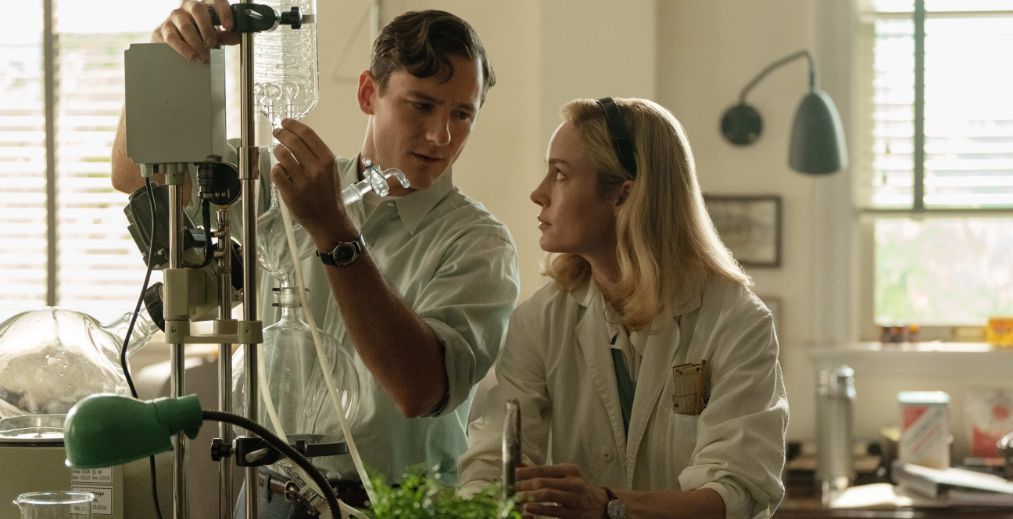
While others, including women at the school, see Elizabeth as arrogant, he sees her as a stellar mind and a chemist first. Their love grows as we see the intimate ways in which co-working can build relationships and the intricacies of sharing a space teaches once lonely people into anticipating and meeting the needs of the other.
Calvin and Elizabeth’s romance is one of the best on television because it is built firmly on a bed of respect. It’s a love that shows that the act of loving and being loved doesn’t mean you need to quiet parts of yourself for the other person to shine. Instead, you find ways to compliment and uplift each other. Watching these two grow into souls that recognize the gaps they fill in each other, how they grow into something larger than themselves, is beautiful and endearing and makes the rest of the series carry a weight so heavy that you feel every emotional beat.
Elizabeth Zott is the series’ protagonist and instead of this series being just a love story, it becomes how the people we meet change us and our trajectories in sometimes somber and other times joyous ways. Lessons in Chemistry is an astounding series that highlights the fact that being strong and resilient doesn’t mean that you have to be alone. You can love and be loved without losing parts of yourself. It’s only your trauma that keeps you from recognizing that reality.
At moments, it’s easy to call Elizabeth stoic in her logical approach to the world, breaking down the complex nature of the world into small pieces like the different elements in a chemical reaction. But Brie Larson’s performance showcases a fire and resiliency under her deadpan delivery. Emotion is always present in a way that snaps back at those she interacts with. Despite those around her seeing her as cold, Elizabeth cares deeply and fights hard, just in her own way. She loves fiercely and grieves painfully. Elizabeth Zott is Larson’s most complex role and her most fantastic performance in her filmography.
The only piece of the series that doesn’t always pay off is carrying emotional trauma throughout the entirety of the series. While Elizabeth’s PTSD is a topic in the first two episodes of the mini-series, it’s quickly forgotten after the romantic plot has come to a head, as if romance to one man cures how your body reacts to others. In one scene in the last third of the season, we see instances of racially motivated police brutality, but then we don’t see Elizabeth, a witness, do much to call it out as it is. Instead, she just talks broadly about values. These indicate moments of emotional resonance are salient when they take place, but they’re more often than not forgotten as the series moves to the next theme.
It’s clear why novel was one of the year’s top books when it was released, Lessons in Chemistry is a series that resonates not only in its subject matter but also in its emotional depth. With stellar costuming and set designs and an even more impressive and dazzling cast, the series is a complex look at life in a way that goes well beyond what’s on the tin.
Lessons in Chemistry is streaming now, exclusively on Apple TV+.
Lessons In Chemistry
-
Rating - 8.5/108.5/10
TL;DR
Lessons in Chemistry is a series that resonates not only in its subject matter but also in its emotional depth. With stellar costuming and set designs and an even more impressive cast, the series is a complex look at life in a way that goes well beyond what’s on the tin.

